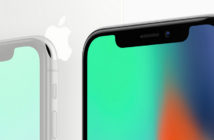By Alastair Masson, client partner at NTT Data
It’s said the average Parisian spends around four years of their life searching for a parking space. That’s astounding. But what if that could be reduced to just two years? Any Parisian would surely bite your hand off for the opportunity. Now, this might sound like a simple analogy, but it holds great significance for many industries, not least the telco sector. We’ll revisit this in a few moments.
Perhaps the greatest problem faced by operators at present is that the vast majority find that most of their resources and time are spent building out and improving physical products, such as their network. This is obviously of crucial importance, and will remain so; however, the network and devices that connect to it are now very much hygiene factors.
Helping customers
Consequently, there is a growing need to differentiate based on helping customers solve problems and open up new opportunities. This demands visibility and consideration of the bigger picture and identifying what really makes their customers tick.
NTT DATA’s sister company, NTT i3, refers to this ‘bigger picture’ as ‘full spectrum innovation’. As is depicted by full spectrum innovation, neither the SIM, network or even the handset is the be all and end all; it’s time to focus on providing the best possible customer experience. In short, operators must start to think like a psychologist. This is how full spectrum innovation thinking can help, by changing product innovation from being technology led, to being problem, experience or opportunity led.
While the traditional way of working has been very successful for operators, the signs are there that they need to adapt to continue that momentum. The emergence of disruptive technologies like the Internet of Things (IoT) and machine to machine (M2M), for example, indicate that the world is changing and operators are playing catch up.
Yet, it also presents an important opportunity for operators to make the important transition from communications providers to being digital businesses, enabling multi-sided markets and business models. Sometimes, however, that means they might not actually own the relationship with the customer, which won’t sit comfortably with everyone until they know what benefits await.
Customer perspective
So, here are three ways in which operators can differentiate themselves and create tangible value for their customers, directly and indirectly. Firstly, they must seek to drive their product development from the perspective of the customer, in terms of real life problems.
Done successfully, this will reap great rewards. To that point, numerous mobile operators and, to some extent, landline operators have found themselves developing an unhealthy obsession with the revenue coming from the endpoint: SIM in a dongle or mobile phone.
Instead, operators that want to adapt their business might choose to open up their network using APIs that computers can use to ask questions on the state of the network and devices on it. A good example of this is Volkswagen’s ‘Eyes on the road’ ad campaign (by Ogilvy & Mather China). This used a location broadcaster, film footage and a simple text message to bring to life the unvarnished risk of mixing driving with mobiles.
Wider ecosystem
Secondly, operators should embrace the inevitability that they no longer work in, and own one ecosystem. As noted earlier, with the introduction of the IoT and M2M, they now find themselves involved in a multiplicity of ecosystems and they will not always be the final point of the relationship.
Take in-car telematics, for example. The owner of this relationship is likely (for the foreseeable future,) to be the manufacturer. Whether that is the likes of BMW, Honda, or any other vehicle manufacturer, the operator will not take centre stage. Instead, this opens up an opportunity for taking revenue as the wholesaler that supports the end customer’s relationship with the manufacturer. This is a subtle but important shift in the way operators are generating revenue.
Value-added services
Finally, operators will benefit from the shift from being providers of connectivity services to providing value-added digital services. For example, integrating mobile payments, car telematics with parking schemes to deliver a smart parking solution, much like the one that could help give the average Parisien another two to four years of their life back.
Again, this comes down to psychology. If, maybe through a full spectrum innovation approach, operators can begin to think about their connectivity platforms as value added service platforms that other service operators can exploit, without that exploitation involving the other organisation always having a SIM card, they will begin the shift from communications provider to digital business.
As a wise man once said, “The mind is like a parachute; it works much better when it’s open”.
NTT Data is an IT services provider and global innovation partner with 76,000 professionals based in over 40 countries.





